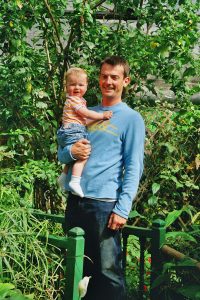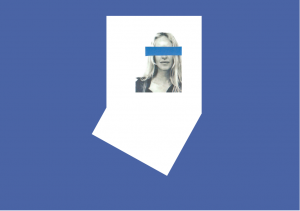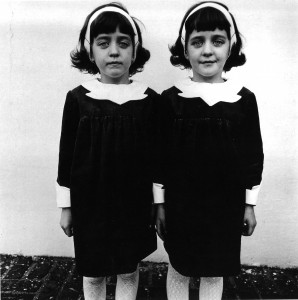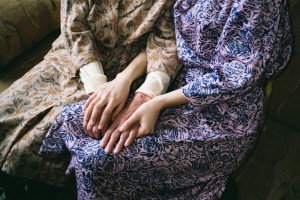
Grief and Memory
by ben o'brien | July 6, 2021
Last summer, I went to a birthday party for my girlfriend’s two-year-old niece. The whole family was there, blowing out candles, taking pictures, and eating cake. But while they were celebrating life, I was busy thinking about death. In between smiling for photos and making polite conversation, I got a Whatsapp message from my parents telling me that our family dog had died. This message was sad in itself – Jakey was a great dog with an excellent sense of humour – but not unexpected. Rather, what hit me was the realisation that his death meant another lost connection to my brother. It was the closest I’d come to feeling the way I had eight years earlier, when I first listened to that voicemail from my parents.
It felt like my brother was dying all over again. The sudden sensation of not quite being able to picture his face as clearly as before, the way a photograph suddenly looks like it’s from a different world altogether. I pictured my brother asking me not to forget him. I sensed, however, that this wasn’t the right place to talk about death: I knew it would make everyone uncomfortable if I talked about my dead brother at a children’s birthday party. So, I pressed on with my photo duties and tried to make it seem like I was enjoying the slice of birthday cake on its disposable plate. But later I asked myself: why shouldn’t I have said anything? Everyone experiences death at some point in their lives, so why are we so reluctant to talk about loss?
I didn’t really bring my brother up in conversation for the first three or four years after he died. This wasn’t because it felt too painful or because I refused accept the reality of his death. He was constantly on my mind. I just didn’t feel the need to talk about him, not even around my closest friends and family. I found it more comforting to be alone when I thought about him. Soon after he died, I developed my own little rituals, paying homage to him by wearing his unwashed Arsenal shorts, or going into his cold, dark bedroom, turning on the lights and radiator to sit on the corner of his bed.
My parents, on the other hand, used every social setting as an opportunity to talk about the son they had lost. They made toasts to him at every meal. They dug out old photos of him and left them permanently scattered on the kitchen table, always there to provide some particular memory to reminisce over. They would find ways of directing any conversation, no matter how tangential, back to my brother. I remember thinking that they were in denial. It was as if they thought speaking about my brother would keep him alive – as if talking about his life in Barcelona meant he was still there, his silence the silence of a normal son forgetting to return his parents’ calls.
I’ve since come to realise that my parents do it not to keep him alive but to keep his memory from dying – not speaking about my brother was to risk forgetting him entirely. But at the time, I thought: how could we ever forget him? How could we forget the memories of him and I taking mum’s tights to dress up as ‘Tight Men’, or the times we performed our carefully choreographed duets of Bohemian Rhapsody to the extended family at Christmas? Having a brother – or a sister, or a husband, or wife, or son, or daughter – is a part of who we are. I didn’t just have a brother, I was a big brother to a little brother. I still am.
I spent a lot of time with my friends just after he died. Many of them grew up with me and knew my brother almost as well as they knew me. But it was as if grief had changed all the rules. Nobody, including some of my closest friends, knew how to act. Were they still allowed to make jokes around me, let alone jokes about me? What were they supposed to do and say, beyond hug me and tell me they were sorry? In this strange new situation, their awkwardness was made worse by the pressure they felt to say the right thing, as if they were expected to find a phrase that would somehow remedy all our grief.
Some tried to talk about my brother but couldn’t quite bring themselves to do it. A friend that I hadn’t spoken to in years sent me a message telling me he was “no good at talking,” that instead he’d gone to church and lit a candle in my brother’s memory. Another phoned me to say how sorry he was to hear what had happened. I started reminiscing about the three of us playing football. He froze when I reminded him of how we always made my brother go in goal, wearing oversized gloves that made him look like a tiny clown: “I just don’t know what to say.”
Now, though, nobody other than my parents really mentions my brother anymore. As we all go on living, filling our futures with new memories that have nothing to do with him, he remains in the past. Since he died, I’ve gone to Oxford and studied subjects he never liked, in places he never knew, full of friends who have no idea he ever existed. In many ways, I sometimes think he would hardly recognise me now, even if he somehow did come back. When I’m not in Oxford, I live in France with my girlfriend. She never got to know my brother. The closest she came to meeting him was hearing his muffled voice when I was in another room, speaking to him on Skype. No matter how much she hears about him, there is no way she can really know what he was like – how he laughed, how he made me cry with laughter, the sound of his voice, the way he crunched his cereal too loudly. My new second family would never know my brother. This is the paradox of mourning. I don’t want to forget my brother, but I want to go on living my life. Yet the more I do, the more the memories of him are crowded out. I tell myself that, surely, this is only natural, but I’ve come to realise why my parents see the act of remembering as a necessity, not something that happens naturally.
When people used to ask me if I had any siblings, I’d say “no” and leave it at that. Now I always say that I had a brother, but that he died. Bringing him into our lives, even in such small ways, might be uncomfortable, but it’s ultimately necessary. My solitary acts of remembrance no longer seem quite up to the task. I still wear the Arsenal shorts, of course, though now they have been washed. I still have his number saved on my phone. I still have the last emails he sent me, full of his familiar jokes. The difference is that now that I sometimes talk about him at birthday parties, too.∎
Words by Ben O’Brien, artwork by Liv Fugger




